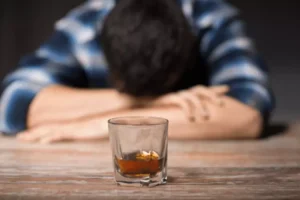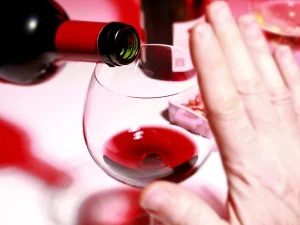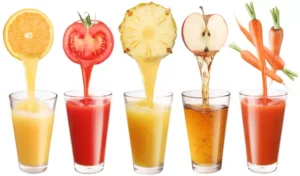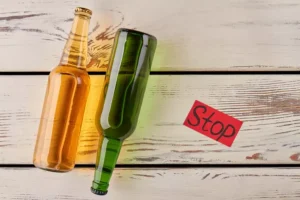
This is because while it may feel like you’re taking the edge off your hangover and nausea by downing more drinks, doing this will only prolong your recovery process. All you’re doing is adding more toxins to your body that’s already working overtime to clean out the alcohol you’ve already consumed. If it does, it has very little to do with any magic properties of the tea. That’s why strength training is key to keeping your metabolism up for the long-term, and crucial to bone, muscle and immune function, which ultimately helps to support metabolism over time.
#3: Drinking Wine or Beer Will Not Make Me as Drunk as Hard Liquor
Wait until your headache hits the next day, and then take an Advil, preferably with a big gulp of Pedialyte. But while those preemptive efforts to stave off a thudding headache may seem wise, ultimately they don’t pay off. In fact, combining alcohol with pain relievers of any kind can do serious damage. That, in turn, can lead to negative consequences such as getting too drunk or having a terrible hangover the next day. Drinking impairs your judgment, which increases the likelihood that you will do something you’ll later regret. It increases the chance that you will cause harm to others and/or not be aware of potential dangers around you.

Understanding the Normal Fluctuations in Body Temperature
The truth is that time passing is the only way for alcohol to wear off. Debunking these common myths about alcohol & underage drinking is crucial for protecting teens’ health and well-being. Beverages containing both caffeine and alcohol have been popular for some time, precisely because they allow a person to get intoxicated without feeling drowsy. But the consequences of this often include riskier behavior, greater chances of injury, and higher odds of acting on a poor impulse. For exactly this reason, several beverages that mix energy drinks with alcohol have been taken off the market.
Myth: A person with strong willpower is less likely to develop alcohol use disorder
Left unchecked, these myths can cause people to make poor choices, which ultimately affect their health. Belief in some of these myths may even play a role in the development of alcohol use disorder in some cases. Sure, coffee has caffeine in it, and caffeine makes you more alert. If you can hold your liquor, that might indicate that you’ve developed a tolerance to alcohol, which might indicate that you’re drinking too much. This goes for beer, wine, rum, whiskey, gold tequila, and pretty much any drink with a darkish hue.
- Aside from physical altercations, a single heavy night of drinking can strain or even injure your internal organs—including your stomach, liver, and kidneys.
- This includes your heart, blood pressure, kidneys and mental health.
- The effects of alcohol start sooner than people realize, with mild impairment (up to 0.05 blood alcohol concentration [BAC]) starting to affect speech, memory, attention, coordination, and balance.
- Even though alcohol can lower your inhibitions, it’s also considered a depressant.
- It is worth adding here that although alcohol itself does not kill brain cells, alcohol withdrawal can kill you.
- Dendrite damage interferes with those messages, which can account for all those poorly spelled texts and the inability to walk in a straight line.
Myth: Alcohol really just impacts your liver.

Journey to the local pizza shop with a hankering for greasy, cheesy goodness. And your fuzzy brain told itself eating was a good idea because food would soak https://ecosoberhouse.com/ up some of the alcohol. Acetaminophen is found not only in Tylenol but in hundreds of over-the-counter cold and flu medicines, Excedrin, Midol, and more.
However, a review of studies published from 2013 to 2019 suggests that people with lower socioeconomic status may be more likely to die from alcohol use disorder. Even though alcohol can lower your inhibitions, it’s also considered a depressant. This means that alcohol can reduce sex drive and impact a person’s ability to maintain an erection. You may think that mixing an energy drink with your cocktail will help combat alcohol’s drowsiness effects. Another study found that social drinkers showed significantly reduced amygdala reactivity to threat signals when shown neutral and angry faces.
MYTH: Underage alcohol use doesn’t have any real long-term consequences.
According to the National Institute of Health, for men, heavy drinking is considered as five or more drinks on a single day or 15 or more per week. For women, heavy drinking is considered as four or more drinks on a single day or eight or more drinks per week. With your first drink, alcohol floods your brain with dopamine, giving you a temporary stress-relieving boost. However, that pleasure quickly can quickly evolve into feelings of nervousness and anxiety.
Treatment for Alcohol Addiction
- Additionally, alcohol can damage the nerves in the inner ear, affecting balance.
- So if you have chronic pain, it’s best to put down that drink.
- In general, for brain health, I recommend people drink a maximum of one serving of alcohol once or twice a month.
- The primary factor in intoxication is the amount of alcohol consumed, not the variety.
- Problem drinking isn’t about what type of alcohol you drink, nor is it about on which days you drink.
- Eating before drinking can slow your body’s absorption of the alcohol, but it can’t prevent you from getting drunk.
No matter how much a guy drinks, if you drink the same amount as your male friends your blood alcohol concentration will tend to be higher, putting you at greater risk for harm. If you are drunk, nothing will help make you sober except time. Your body needs time to break down the alcohol in your system. However, it will not improve your coordination or decision-making skills. These can be impaired for several hours after you stop drinking. This is why it is never safe to drive after you have been drinking, no matter how many cups of coffee you have.
To anyone that’s addicted to alcohol, one wine or beer can be the first step down an unhealthy path. Those suffering from alcoholism who try to drink socially or “have just one” usually fall back into old habits or even into a full-blown relapse. It’s important to have a sober network of people who will myths about alcoholism not put him or her on a harmful path of self-destruction. Some people believe that if those suffering from addiction simply had better willpower they could quit drinking. Addiction is a disease and this myth is the same as saying someone with an illness should just get better by not wanting to be sick.

This supportive, educational setting is grounded in the spiritual principles of AA. By providing a safe and supportive environment to study and practice these principles, The Retreat opens the door to a life of contented sobriety. It’s not just about enjoying a cold one with friends or having an occasional drink at a party – oh no! Alcoholism, also known as alcohol use disorder (AUD), is when someone has an unhealthy relationship with alcohol and becomes dependent on it. One reason is that people become more sensitive to alcohol as they get older.

No comment yet, add your voice below!